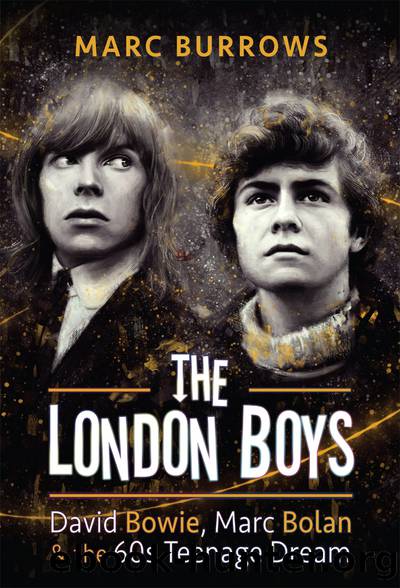The London Boys by Marc Burrows

Author:Marc Burrows
Language: eng
Format: epub
Tags: MUSIC / Genres & Styles / Rock
Publisher: Pen and Sword
Published: 2022-12-31T00:00:00+00:00
Chapter Eleven
How Queer?
âThroughout the 1960s, Britain was punch drunk,â wrote the Conservativeâs conservative, Mary Whitehouse, in her 1977 book What Ever Happened To Sex?1. âA continual stream of advocacy in favour of premarital sex, abortion on demand [and] homosexuality.â Whitehouse, a teacher who had become shocked into activism by the declining morals of her pupils, had become the public conscience of a certain kind of buttoned up small-c conservative little Englander. Her crusade against the plummeting standards of society made her a figurehead, but she was hardly alone. Regardless of who was in government, regardless of Mick Jagger pouting and preening on TV, regardless of the camped-up performances of Kenneth Williams and Liberace, regardless of how many knee-tremblers and hand shandies were dispensed in the back alleys of Soho, Britain was still very much a country that regarded sex between two men as, at the very worst, an unnatural abomination or a mental illness and at best something alien, odd, a little icky and distinctly un-British. Which is, of course, nonsense, there is a grand tradition of British queerness, of queer figures in the public eye, of absolutely accepted camp. To the public though, such mincing antics had their place â on the television (preferably after 9pm), on the stage or down in âthat London.â Anywhere else was pushing it.
Some of this innate homophobia manifested in a fnah-fnah âbacks against the walls ladsâ humour; for better or worse always present in British comedy from Shakespeare to the music hall to the Carry On movies. Sadly it was also common for it to develop into hate crimes of violence and murder. A study by the contemporary anthropologist Geoffrey Gorer, published in 1971, examined the sexual attitudes of men and women aged between sixteen and forty-five and found that the most common attitude toward homosexuality was disgust and the second most common was pity â to be gay was to be either unacceptably degenerate, sinful even, or in the very best case, mentally ill. The previous five years of what we now think of as Swinging Londonâs atmosphere of free love, rampant, joyful debauchery and gender bending had scarcely made a dent in those statistics, though Gorer noted that sympathy or even acceptance of gay people was far more common in the younger subjects he interviewed. When Gorerâs study was published sex in private between consenting men had been legal, in England and Wales, at least2, for nearly four years. Even its legality was scarcely evidence of acceptance; the MP David Owen, one of the most outspoken supporters of de-criminalisation, made a speech in Parliament during a campaign for legalisation in the fifties in which he declared that âno Honourable Member, whatever viewpoint he or she put forward, has condoned homosexual behavioursâ. A decade later and views had scarcely improved. Noone in Parliament was arguing that being gay was healthy or normal â merely that as a private sexual activity, it shouldnât really be the business of the state.3
In 1966, when David
Download
This site does not store any files on its server. We only index and link to content provided by other sites. Please contact the content providers to delete copyright contents if any and email us, we'll remove relevant links or contents immediately.
The Goal (Off-Campus #4) by Elle Kennedy(12452)
Kathy Andrews Collection by Kathy Andrews(10560)
Diary of a Player by Brad Paisley(6872)
What Does This Button Do? by Bruce Dickinson(5537)
Assassin’s Fate by Robin Hobb(5256)
Big Little Lies by Liane Moriarty(4894)
Pale Blue Dot by Carl Sagan(4018)
Sticky Fingers by Joe Hagan(3459)
The Heroin Diaries by Nikki Sixx(2943)
The Death of the Heart by Elizabeth Bowen(2911)
Beneath These Shadows by Meghan March(2731)
The Help by Kathryn Stockett(2710)
Confessions of a Video Vixen by Karrine Steffans(2684)
How Music Works by David Byrne(2540)
Jam by Jam (epub)(2497)
Harry Potter 4 - Harry Potter and The Goblet of Fire by J.K.Rowling(2422)
Strange Fascination: David Bowie: The Definitive Story by David Buckley(2371)
Petty: The Biography by Warren Zanes(2241)
Darker Than the Deepest Sea by Trevor Dann(2214)
